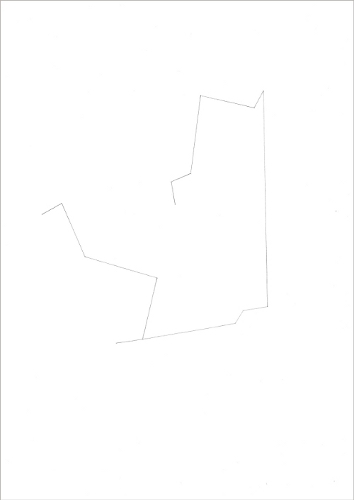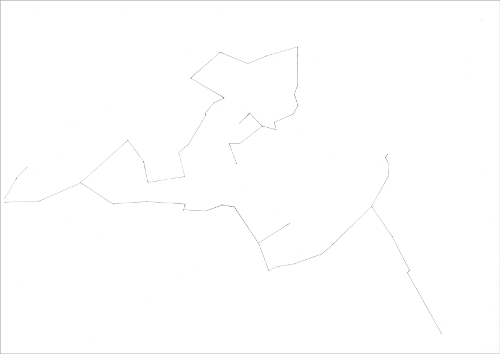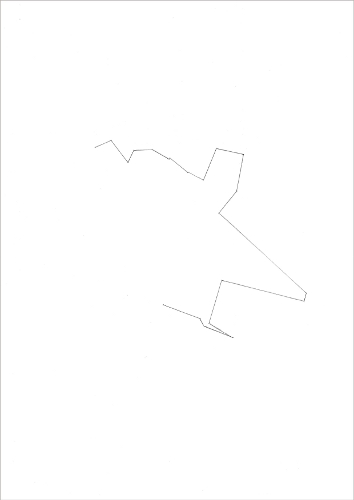No edit summary |
No edit summary |
||
| Line 14: | Line 14: | ||
<br/> | <br/> | ||
[[File:scan1.jpg]] | [[File:scan1.jpg]] | ||
human architecture 1 | human architecture 1 | ||
As a starting point I've done some pencil drawings. They are based on Walking Tours of German cities, from the Lonely Planet guide book series. Below are Weimar, Erfurt and Dresden. The line follows the route of the Walking Tour, all other details are absent. I'm interested in the idea of directing, and being directed through space. | As a starting point I've done some pencil drawings. They are based on Walking Tours of German cities, from the Lonely Planet guide book series. Below are Weimar, Erfurt and Dresden. The line follows the route of the Walking Tour, all other details are absent. I'm interested in the idea of directing, and being directed through space. | ||
| Line 32: | Line 30: | ||
<br/> | <br/> | ||
walking tour, Dresden | walking tour, Dresden | ||
'''Revised statement 1''' | |||
In some ways, '''architecture can be as much a barrier to culture and heritage as a supporting mechanism for it'''. It can restrict access to tangible objects while creating an unessesary container for intangible ones. This is particularly the case when we need to pay entry to museums and art galleries, when their opening hours are restrictive, when they are crowded or unappealing, when they do not meet the needs of certain groups, and when collection items are not available for public viewing. As well, the need to 'build something' is sometimes not possible on sites of intrinsic cultural and historical value. | |||
During the next weeks I will undertake a number of loose experiements around the idea of ''' 'barrier free' culture and heritage''' sites and initiatives. | |||
<br/> | <br/> | ||
Revision as of 08:30, 7 November 2012
Jeremy Booth | workbook | Provocative Architecture
statement 23.10.12
I would like to look at how ideas of tangible and intangible histories and cultural 'matierals' can be considered, interrogated, and reimagined, through strategies other than typical museum and/or collection-related, authorative positions. I'm particularly interested in ideas of interactivity and mobility.
... elaboration as keyword/terms
- intangible / tangible
- material / immaterial
- public space
- 'domains'
- culture / history / heritage
human architecture 1
As a starting point I've done some pencil drawings. They are based on Walking Tours of German cities, from the Lonely Planet guide book series. Below are Weimar, Erfurt and Dresden. The line follows the route of the Walking Tour, all other details are absent. I'm interested in the idea of directing, and being directed through space.

walking tour, Weimar

walking tour, Erfurt

walking tour, Dresden
Revised statement 1
In some ways, architecture can be as much a barrier to culture and heritage as a supporting mechanism for it. It can restrict access to tangible objects while creating an unessesary container for intangible ones. This is particularly the case when we need to pay entry to museums and art galleries, when their opening hours are restrictive, when they are crowded or unappealing, when they do not meet the needs of certain groups, and when collection items are not available for public viewing. As well, the need to 'build something' is sometimes not possible on sites of intrinsic cultural and historical value.
During the next weeks I will undertake a number of loose experiements around the idea of 'barrier free' culture and heritage sites and initiatives.
